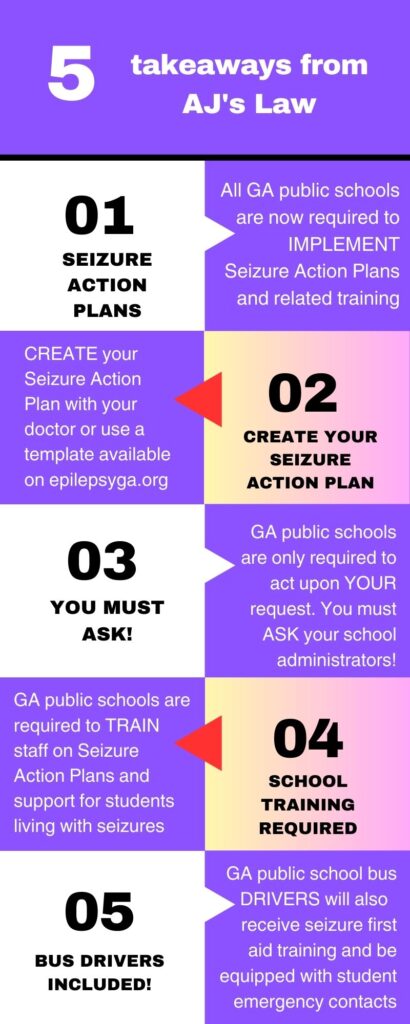AJ’s Law: Empowering Students Living with Seizures in Georgia Schools
Living with epilepsy or a seizure disorder can present unique challenges for students and families, especially in a school environment. These challenges can range from a lack of education and awareness from school personnel and classmates to a lack of first aid training by school personnel in the event of a seizure during school hours. As students head back to school after summer break, families will no longer have to face these challenges alone thanks to AJ’s Law. Let’s dive into the key questions and points about AJ’s Law that every parent, guardian, and school should know to ensure the well-being and success of students living with epilepsy or a seizure disorder.
WHAT IS AJ’S LAW?
In short, AJ’s Law requires Georgia public schools to both 1) IMPLEMENT seizure actions plans submitted by a student’s parent or guardian, and 2) TRAIN school staff on seizure action plans and seizure first-aid, among other requirements. The law became effective in July 2023 and was passed unanimously by Georgia legislators. The law gets its name from AJ Taylor, a fierce advocate living with epilepsy in Georgia who partnered with Georgia legislators for years to ensure public schools are adequately trained to provide proper care for students living with seizures. Read more about AJ’s journey to change lives across our great state here.
WHAT DOES AJ’S LAW MEAN FOR YOU?
Every student has the right to access a school of their choice regardless of their medical condition. AJ’s Law provides families confidence that students can attend school safely by ensuring Georgia public schools are equipped with the right information and training to enable school personnel to provide proper care for students living with seizures when they need it.

